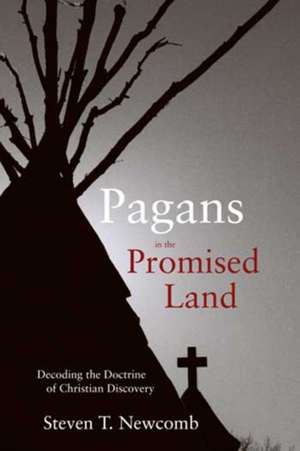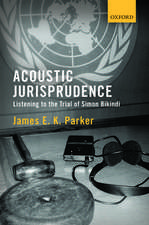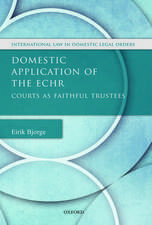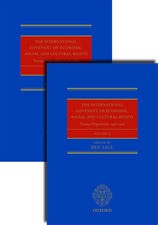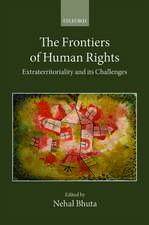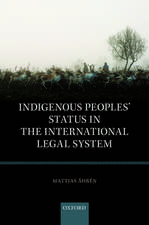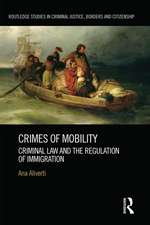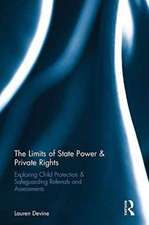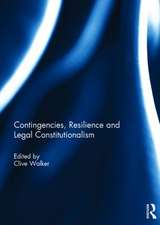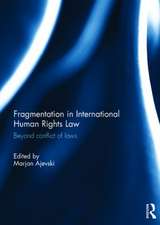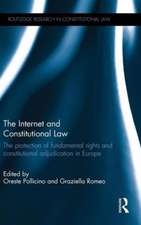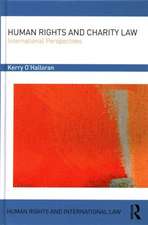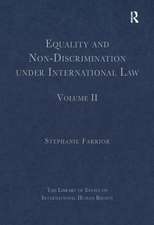Pagans in the Promised Land: Decoding the Doctrine of Christian Discovery
Autor Steven T. Newcomben Limba Engleză Paperback – 28 ian 2008
Pagans in the Promised Land provides a unique, well-researched challenge to U.S. federal Indian law and policy. It attacks the presumption that American Indian nations are legitimately subject to the plenary power of the United States. Steve Newcomb puts forth a startling theory that U.S. federal Indian law and policy are premised on Old Testament narratives of the chosen people and the promised land, as exemplified in the 1823 Supreme Court ruling Johnson v. McIntosh, that the first "Christian people" to "discover" lands inhabited by "natives, who were heathens," have an ultimate title to and dominion over these lands and peoples. This imporant addition to legal scholarship asserts there is no separation of church and state in the United States, so long as U.S. federal Indian law and policy are premised on the ancient religious distinctions between "Christians" and "heathens."
Preț: 109.26 lei
Nou
Puncte Express: 164
Preț estimativ în valută:
20.91€ • 22.70$ • 17.56£
20.91€ • 22.70$ • 17.56£
Carte disponibilă
Livrare economică 01-15 aprilie
Preluare comenzi: 021 569.72.76
Specificații
ISBN-13: 9781555916428
ISBN-10: 1555916422
Pagini: 186
Dimensiuni: 161 x 223 x 15 mm
Greutate: 0.32 kg
Editura: Fulcrum Group
ISBN-10: 1555916422
Pagini: 186
Dimensiuni: 161 x 223 x 15 mm
Greutate: 0.32 kg
Editura: Fulcrum Group
Recenzii
"...shines an informative light into understanding the conscious-and unconscious-founding principles of 'the United States of America' empire." -- The Indypendent, April 25, 2008
"...a must-read for anybody wishing to understand what truly motivates American policy towards the indigenous peoples within its borders." -- Blogcritics.org, April 27, 2008
"...a powerful book. Read it and you'll understand how this dominating mentality influences U.S. domestic and foreign policy today." -- Indian Country Today, April 23, 2008
In "Pagans in the Promised Land," Steven Newcomb...argues that Indian law scholars fail to appreciate the religious dimensions of Marshall's decision. Newcomb, who is Shawnee/Lenape, also breaks new ground by making use of "the tools and methods of cognitive theory" in order to expose-and challenge-the "negative, oppressive, and dominating concepts that have been mentally and, from an indigenous perspective, illegitimately imposed on our existence." While other scholars have explored the religious underpinnings of the doctrine of discovery, Newcomb offers new insights by consciously connecting "the biblical basis of the claimed right of Christian discovery and dominion" with the "mentality of empire and domination." By its use of cognitive theory, Pagans in the Promised Land presents a new perspective on the doctrine of discovery. Newcomb forcefully argues that an essential part of the decolonizing process "must occur in the mind." His book sets forth a fresh way to think about, and decode, federal Indian law. --Great Plains Research Vol. 19 No. 2, 2009 from the Center for Great Plains Studies, University of Nebraska-Lincoln by Blake A. Watson, University of Dayton School of Law
I enthusiastically agree with Newcomb's conclusions: we must reject and move away from the Conqueror model as well as the Chosen People-Promised Land model of the Old Testament; we must recognize that these models are embedded in federal Indian law and are simply falsehoods based on the American imagination; and we must learn the power of traditional Indigenous knowledge for the sake of ourselves and all of humankind in this new era of American dominion. This book is a great piece for all scholars of Indigenous studies, an especially great piece for teachers, and, as hinted at before, an excellent piece for white Americans in need of beginning lessons in understanding why Indians might still be a little upset about history. --American Indian Quarterly, Fall 2009 by Leola Tsinnajinnie, University of New Mexico
"...a must-read for anybody wishing to understand what truly motivates American policy towards the indigenous peoples within its borders." -- Blogcritics.org, April 27, 2008
"...a powerful book. Read it and you'll understand how this dominating mentality influences U.S. domestic and foreign policy today." -- Indian Country Today, April 23, 2008
In "Pagans in the Promised Land," Steven Newcomb...argues that Indian law scholars fail to appreciate the religious dimensions of Marshall's decision. Newcomb, who is Shawnee/Lenape, also breaks new ground by making use of "the tools and methods of cognitive theory" in order to expose-and challenge-the "negative, oppressive, and dominating concepts that have been mentally and, from an indigenous perspective, illegitimately imposed on our existence." While other scholars have explored the religious underpinnings of the doctrine of discovery, Newcomb offers new insights by consciously connecting "the biblical basis of the claimed right of Christian discovery and dominion" with the "mentality of empire and domination." By its use of cognitive theory, Pagans in the Promised Land presents a new perspective on the doctrine of discovery. Newcomb forcefully argues that an essential part of the decolonizing process "must occur in the mind." His book sets forth a fresh way to think about, and decode, federal Indian law. --Great Plains Research Vol. 19 No. 2, 2009 from the Center for Great Plains Studies, University of Nebraska-Lincoln by Blake A. Watson, University of Dayton School of Law
I enthusiastically agree with Newcomb's conclusions: we must reject and move away from the Conqueror model as well as the Chosen People-Promised Land model of the Old Testament; we must recognize that these models are embedded in federal Indian law and are simply falsehoods based on the American imagination; and we must learn the power of traditional Indigenous knowledge for the sake of ourselves and all of humankind in this new era of American dominion. This book is a great piece for all scholars of Indigenous studies, an especially great piece for teachers, and, as hinted at before, an excellent piece for white Americans in need of beginning lessons in understanding why Indians might still be a little upset about history. --American Indian Quarterly, Fall 2009 by Leola Tsinnajinnie, University of New Mexico
Notă biografică
Steven T. Newcomb (Shawnee/Lenape) is the indigenous law research coordinator at the Sycuan education department of the Sycuan Band of the Kumeyaay Nation in San Diego County, California. He is cofounder and codirector of the Indigenous Law Institute, a fellow with the American Indian Policy and Media Initiative at Buffalo State College in New York.
Descriere
An analysis of how religious bias shaped U.S. federal Indian law.
